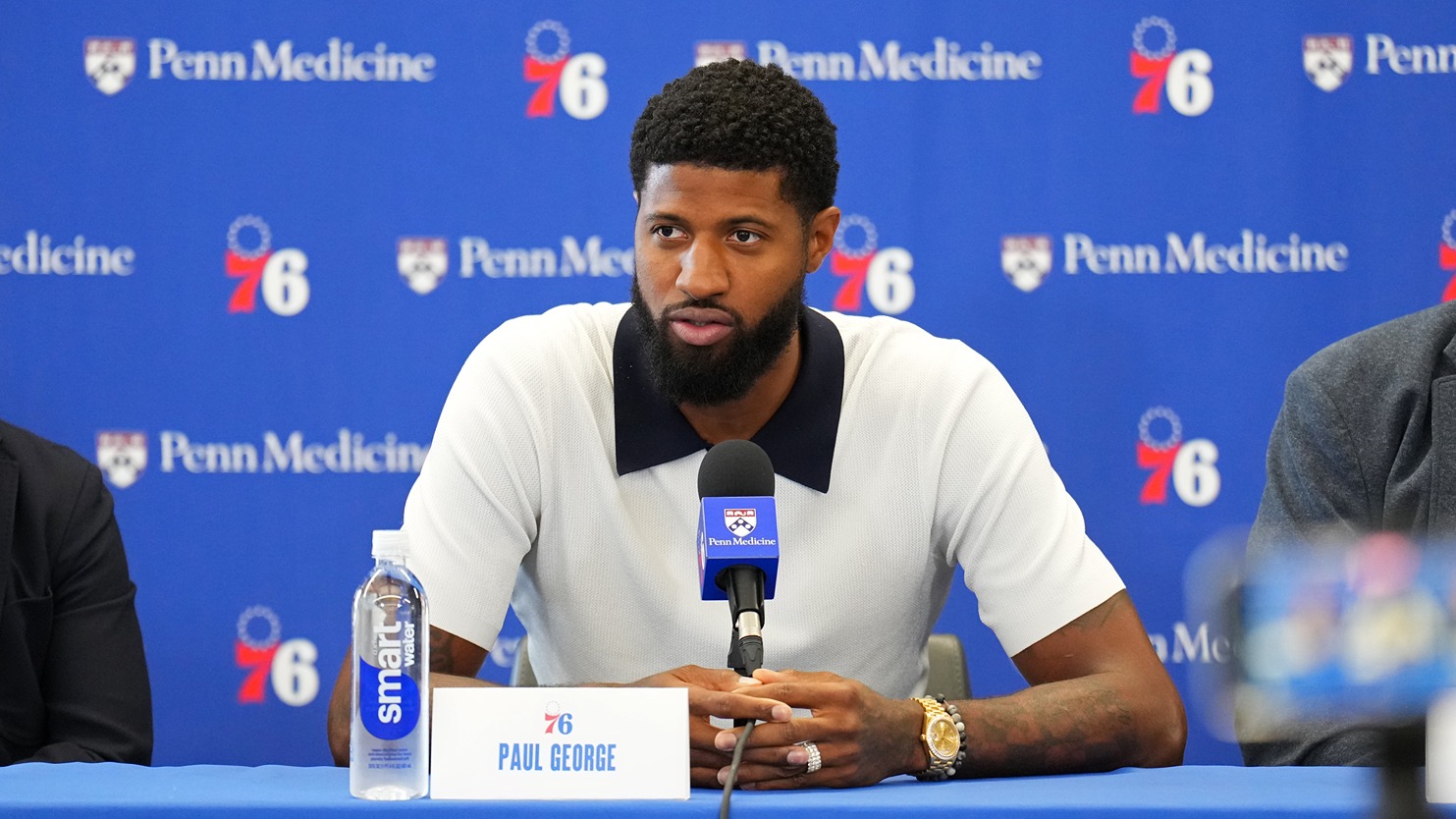Rigidity rarely makes sense when the playoffs come around.
Unless you're staring at something pretty, you might as well blink.
With Joel Embiid out for Games 1 and 2 of the Sixers’ second-round playoff series against the Heat, the team’s Plan A was in Philadelphia.
Stay in the game with the latest updates on your beloved Philadelphia sports teams! Sign up here for our All Access Daily newsletter.
Embiid’s impact is massive, as he demonstrated for the umpteenth time Friday night in returning from a right orbital fracture and concussion to help the Sixers cut Miami’s series lead to 2-1. Even with Embiid back, however, much of head coach Doc Rivers’ in-game approach must be flexible.
One reason for that is Embiid’s protective but cumbersome mask, which he acknowledged was a “big adjustment.” Conditioning is also a factor for Embiid, who couldn’t exercise as he dealt with concussion symptoms. He managed 36 minutes in Game 3, and they clearly weren’t a breeze.
“We played him the (entire third quarter) and the first two minutes of the fourth, which is something I don’t enjoy doing,” Rivers said Saturday afternoon after a team film session. “The game was at a snail’s pace, honestly, so you felt very confident. Joel kept saying, ‘At this pace, I can play all game.’ That’s basically what he was saying, but we saw it differently than him. It worked for us … but that’s not something we’re going to do every night.”
Paul Reed was the Sixers’ backup center and DeAndre Jordan, the starter to begin the series, did not appear.
NBA
Rivers framed that move as an obvious one.
“It wasn’t much of a decision for us,” he said. “Paul basically played the same role that he played in the first two games, and that’s where we liked him — coming off the bench, matching him up in those minutes. For Paul, we just kept him in the same spot.”
That comment suggests Reed’s rotation place is secure for now. He’s a 22-year-old with fouling issues the Sixers know all about, and yet last year’s G League MVP has a relatively consistent role by the team's current standards.
Matisse Thybulle was the Sixers' sixth man Friday, receiving 20 minutes. The third-year wing's offense tends to be worrisome. Thybulle hasn’t made a three-pointer since Game 2 of the first round (0 for his last 5), and it’s challenging to use him alongside other players like Reed that defenses treat as non-shooters. He’s at least seemed sharper the last two games defensively and can perhaps be positive (or neutral) on offense at certain moments next to the Sixers’ stars through creating transition chances with forced turnovers, being part of double drag actions, and making the occasional smart cut.
Georges Niang was a 40.3 percent three-point shooter during the regular season on a high volume, but he went 0 for 7 from long range in Game 1 and is playing on a left knee that Rivers has admitted isn’t 100 percent healthy. Niang fouled out in Game 2 in just over 10 minutes, then only played 8:38 in Game 3. His regular-season minutes low was 13.
Furkan Korkmaz entered the Sixers’ rotation for Game 2 but stayed on the bench for the second half of Game 3. Shake Milton was back in the mix, initially checking in late in the second quarter Friday night when James Harden picked up his third foul and snapping a frigid Sixers spell with a wing three. Rivers played the 25-year-old early in the fourth, too.
“Guys like Shake and Furk and even Matisse, they’re going to keep changing,” Rivers said Saturday. “And every coach in the NBA would say, ‘I would love to have an eight-man rotation where we do it every night.’ Well, that’s not up to the coach. That’s up to the players to define the roles so well that you never want to change. But when you don’t have that, you have to be willing to keep changing, keep moving those three around. And that’s what we’re doing.
“It’s not one thing one guy is doing over the other. It’s every night you look at the team, you look at the game, and you look at how one (player) can help you in this game and then one can help you in the next game, because no one’s really taken that role over. Shake was good last night and we need more of that.”
On the morning of Game 2, Rivers didn’t dance around calling the Sixers “not as deep” as the Heat, and he highlighted Duncan Robinson’s Game 1 DNP as an illustration of Miami’s depth.
After a 79-point night in which the Heat shot 23.3 percent from three-point territory, perhaps Miami head coach Erik Spoelstra will add the sharpshooting Robinson to his team’s Round 2 rotation. Rivers will aim to choose wisely with what he’s got off the bench.


